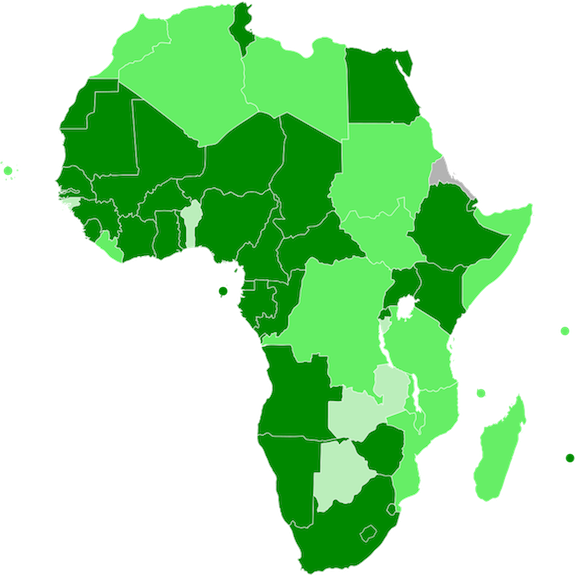Africa heralds onset of free-trade pact after years of talks
The first goods will begin to flow under an Africa-wide free-trade pact on Friday, the culmination of more than five years of negotiations on cutting cross-border tariffs.
The accord comes to fruition at a time when trade tensions are rising across much of the rest of the world. The 55-nation Africa Union will mark the occasion in a ceremony that comes just hours after the U.K. leaves the European Union’s single market and a new post-Brexit trade agreement enters into force.

Africa could be the world’s biggest free-trade zone by area when its treaty becomes fully operationally by 2030. The bloc has a potential market of 1.2 billion people and a combined gross domestic product of $2.5 trillion.
The accord “will fundamentally change the economic fortunes of our continent,” South African Presdent Cyril Ramaphosa, who holds the AU’s rotating chairmanship, said in a speech on Thursday. “It is the start of a new era of trade between African countries, when the continent will produce the goods and services it needs, when its economies will grow, industrialize and diversify, when it will realize rhe great potential of its abundant natural resources.”
Intra-African trade fell to 14.5% of the total in 2019, from 15% the year before. The free-trade pact could bolster the proportion to 22%, and commerce within the continent could rise to more than $231 billion even if all other conditions remained unchanged, the African Export-Import Bank said in report published on Dec. 15. Internal shipments accounted for 52% of total trade in Asia and 72% in Europe, according to Afreximbank data.
The accord seeks to lower or eliminate cross-border tariffs on most goods, facilitate the movement of capital and people, promote investment and pave the way for a continent-wide customs union.
All but one of the 55 nations recognized by the African Union have signed to join the area and more than half have ratified the accord. Eritrea, which has a largely closed economy, is the sole holdout.The formation of the trading bloc could cushion the region against continuing coronavirus-related uncertainties and escalating trade tensions, as well as lessen its exposure to adverse terms of trade and price cycles for commodities, Afreximbank said last month.
Similar Stories

December 2024 U.S. Transportation Sector Unemployment (4.3%) Was the Same As the December 2023 Level (4.3%) And Above the Pre-Pandemic December 2019 Level (2.8%)
View ArticleDP World appoints Jason Haith as Vice President of Freight Forwarding for U.S. and Mexico
DP World, a global leader in logistics and supply chain solutions, has announced the appointment of Jason Haith as Vice President, Commercial Freight Forwarding – U.S. and Mexico, effective immediately.…
View Article
Amaero secures final approval for $23.5M loan from Export-Import Bank
View ArticleU.S. Bureau of Labor Statistics employment situation
Total nonfarm payroll employment increased by 256,000 in December, and the unemployment rate changed little at 4.1 percent, the U.S. Bureau of Labor Statistics reported today. Employment trended up in…
View ArticleImport Cargo to remain elevated in January
A potential strike at East Coast and Gulf Coast ports has been avoided with the announcement of a tentative labor agreement, but the nation’s major container ports have already seen…
View ArticleS&P Global: 2025 U.S. transportation infrastructure sector should see generally steady demand and growth
S&P Global Ratings today said it expects activity in the U.S. transportation sector will continue to normalize in 2025, with growth rates for most modes of transportation slowing to levels…
View ArticleGet the most up-to-date trending news!
SubscribeIndustry updates and weekly newsletter direct to your inbox!





